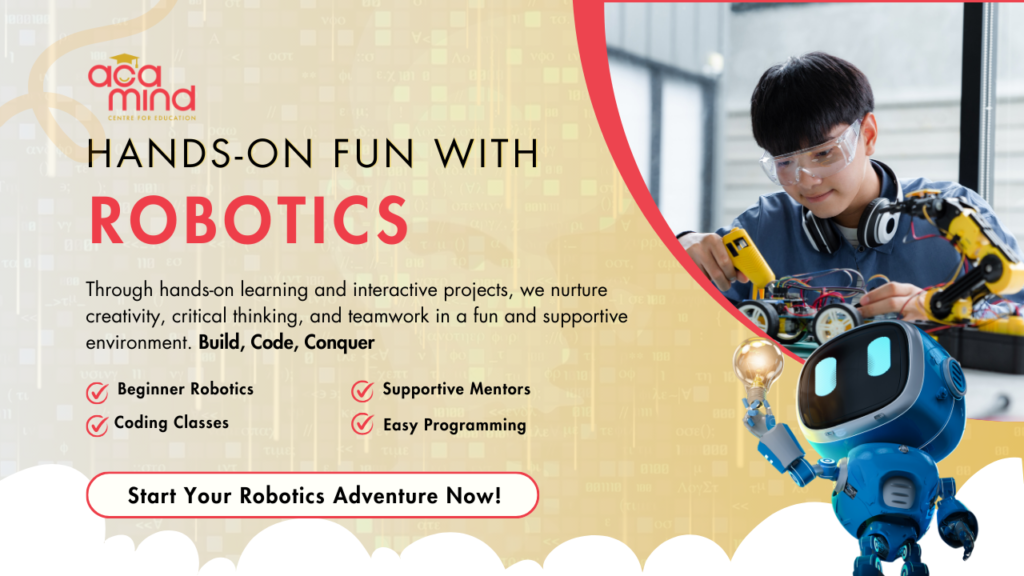-
 Call Us :
Call Us : -
 Mail Us :
Mail Us : -
 Request a Call
Request a Call

This Robotics Course gives various insights of how robots are designed, built and mobilized or operated as well as its usage. This is a course intended for students and people working in practice who want to know the basics of robotics and its applications in practice.
Aware of the fact that theoretical understanding is important, the course also provides practical skills so that participants have steps-by-step practice with Robotics.
Our trainers have not only excelled in the Robotics in UAE, but they are also dedicated educators with proven success in the classroom.
At Acamind, that’s exactly who you’ll find.They know the unique pressures and aspirations of students in the UAE, and they’ve tailored their approach accordingly. Their guidance is more than teaching; it’s a partnership, a journey we walk together. Let us be your compass as you navigate the complexities of the Robotics.
Introduction to Robotics
Basic Concepts in Robotics
Robotics Hardware
Robotics Software
Advanced Robotics Topics
Robotic Vision Systems: Computer vision and image processing
With the skills from the Robotics course, you can build and program your own robots, participate in exciting competitions, and explore various applications in fields like technology, engineering, and automation.
You don’t need any prior robotics experience to join! Our course is designed for beginners and covers the fundamentals of robotics, programming, and engineering principles, making it accessible to students from various backgrounds.
Yes, upon completing the course, you will receive a certificate of completion, which can be a valuable addition to your academic and professional profile.
![]() Our Support
Our Support
